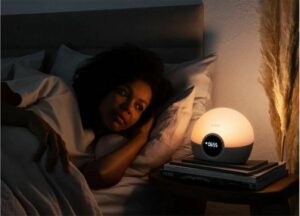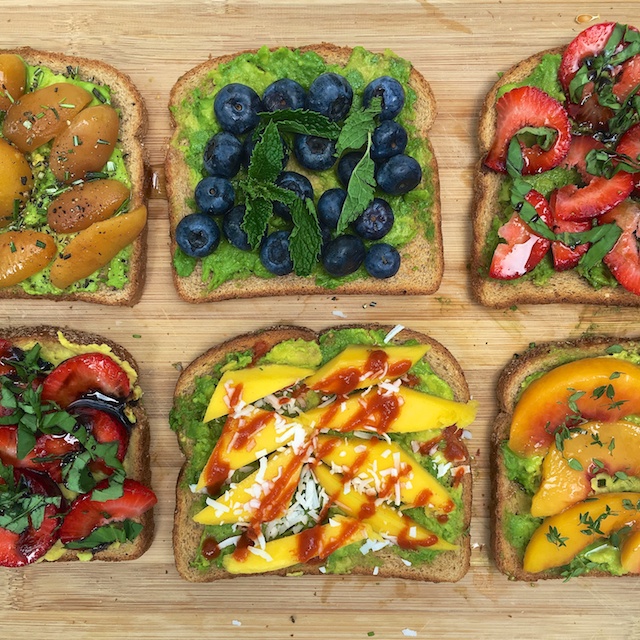Running on autopilot? Not feeling refreshed upon waking? Experts reveal 5 simple ways you can feel more awake and alert every morning
Few of us tend to spring out of bed with Tigger-like energy – especially during the winter.
Worryingly, a survey commissioned by Healthspan reveals a quarter of adults have entire days where they NEVER feel completely awake or alert and a third are functioning on autopilot.
Here’s a few things that could help…
#1 Raise the alarm
Nearly two thirds of those polled believe their body has a natural inclination to sleep at certain times.
‘Many people find they have a natural sleep pattern and get the best sleep if they follow this. This, in turn, will make waking up in the morning easier,’ says sleep therapist and body clock expert, Dr Kat Lederle.
Problem is, we are not generally left to our own devices when it comes to waking, and are instead reliant on using an alarm to rudely awaken us and get us off to work or school in the morning.
we are not generally left to our own devices when it comes to waking, and are instead reliant on using an alarm
Rob Hobson, Nutritionist and author of The Art of Sleeping says that however tempting it might be to hit the snooze button (and in the survey most people don’t get out of bed for another 18 minutes after their alarm goes off…), try your best to avoid hitting snooze as ‘it’s likely to leave you feeling groggy, especially if you fall back into a deep sleep and are then woken from that’.
Try also to avoid using your smartphone as your alarm and make your alarm experience less, well, alarming by investing in a Lumie BodyClock Rise 100, a gradually brightening light that naturally rouses you from your sleep so you wake up gently and feel more refreshed.
#2 Indulge in steamy stuff
When we have managed to rouse ourselves from our beds, most of us feel we can’t fully function without a good strong coffee (or tea) inside us.
That familiar caffeine jolt, courtesy of your first hot coffee of the day, is what the majority (36%) of those polled reach for first thing.
Caffeine is a well-known stimulant and has been shown to enhance a range of cognitive functions including feeling more energised and alert. Therefore, it’s s a good choice, particularly for the one in five who say they arrive at work still sleepy and spend the first 35 minutes there trying to fully wake up.
Which is helpful considering that of those surveyed, 36 per cent said they have made a mistake because they don’t feel fully awake at work and 30 per cent have snapped at someone for the same reason.
36 per cent said they have made a mistake because they don’t feel fully awake at work
‘Savour that first coffee as it is always going to be the best one of the day. If you’re sensitive to coffee then having any others during the day risks upsetting your sleep,’ cautions Rob Hobson.
But what else serves as a rousing a.m. pick-me-up?
Nearly a quarter of respondents say a shower makes them feel a little bit more in the land of the living and a clever way to get your brain more fired up and feel more alert is to add a few drops of rosemary essential oil (like Tisserand’s Rosemary Organic Essential Oil, £7.50) to your shower or bath.
Research shows compounds in rosemary essential oil are responsible for better focus, concentration and improved memory.

#3 Eat your way out of autopilot
Eating is, of course, another way to get some get up and go.
‘Make the first meal of the day one that includes protein, fibre and healthy fats to help you stay energised through until lunch,’ suggests Rob Hobson.
Good choices include avocado, baked beans or egg on wholemeal toast; porridge or soaked oats with fruit and natural yogurt; an omelette, a banana sandwich on wholemeal bread or a smoothie made with banana, natural yogurt and oats.
Make the first meal of the day one that includes protein, fibre and healthy fats
If, like many, you can’t stomach eating first thing try A. Vogel’s Balance Mineral Drink, with vitamin D3, magnesium, zinc, potassium and calcium which should help to release energy and stop you feeling sleepy.
Another nutrient to include is ubiquinol, a type of Coenzyme Q10 crucial for energy production dubbed ‘Nature’s Spark Plug’ and the ‘Get up and Go’ nutrient.
It is found in oily fish, olive oil, spinach, avocado, lentils and pulses but if you don’t think you are getting enough from your diet or you are over 50 (when it becomes harder to absorb from food), supplement it with Healthspan Ubiquinol Max, containing energy-enhancing B vitamins to help restore flagging energy levels.

#4 Swallow up the sunshine
The darker winter months are known to trigger low mood in many and for some can cause Seasonal Affective Disorder, known also as SAD.
‘One potential reason for this is that the lack of daylight affects the production of hormones which regulate our natural sleep-wake cycle,’ explains Dr Meg Arroll, a Chartered Psychologist working with Healthspan.
‘Levels of melatonin and serotonin, which are important for mood regulation can become imbalanced and this can have a negative effect on how we feel, leading to depressed mood, lack of energy and a general desire to hibernate’.
Vitamin D is created on the skin when exposed to UV light
An early morning walk, run or outdoor work out are perfect options – the exercise will help wake you up, sleep better later and the daylight will help regulate your sleep/wake cycle.
Vitamin D is created on the skin when exposed to UV light, hence being dubbed the ‘sunshine vitamin’.
‘We do know that vitamin D deficiency is associated with low mood. So as any sunshine at this time of the year might be not strong enough to replenish our natural vitamin D level, it may be helpful to invest in a good quality 10mcg vitamin D product, as per government guidelines, such as Healthspan Vitamin D3,’ suggests Dr Arroll.

#5 Be better in the bedroom
‘Many of us struggle in the morning mostly because we don’t get enough quality sleep during the night’, says Dr Lederle.
‘Sleep time could be too short or it could have been disrupted. Often this is due to stress during the day which still affects us (through subconscious worrying) at night while we sleep’.
Rob Hobson also points out whilst us Brits spend an inordinate amount of time complaining about sleeping badly we don’t actually do a great deal to remedy this.
Creating a sleep routine can help however, as you begin to associate the ritual with sleep – aiming for roughly the same bedtime and getting up time.
You are also less likely to have an interrupted night’s sleep if you lay off the booze
Use a ‘sedating’ scent like This Works Deep Sleep Pillow Spray, or a soporific oil blend in a diffuser (like Puressentiel Relax Blend, containing chamomile, lavender and sandalwood which will help to create more calming conditions for sleep.
Reading (but not online), listening to soothing music or an audiobook can help reduce stress and anxiety and prime you for sleep too.
You are also less likely to have an interrupted night’s sleep if you lay off the booze, as it can wake you in the night and will interfere with the necessary REM sleep you need to make you feel refreshed.
Plus we are all aware now that coming off digital devices a few hours before turning in is ideal for a good nights sleep as the blue light emitted from them can interfere with levels of melatonin, the sleep hormone.

More Healthista Content:
Decision making: 6 ways to be less indecisive
Signs of menopause? 7 things every woman needs to know
7 osteopath recommended morning stretches to set you up for the day
5 ways to get your steps in despite the rainy weather
A gynaecologist’s guide to heavy and irregular bleeding










